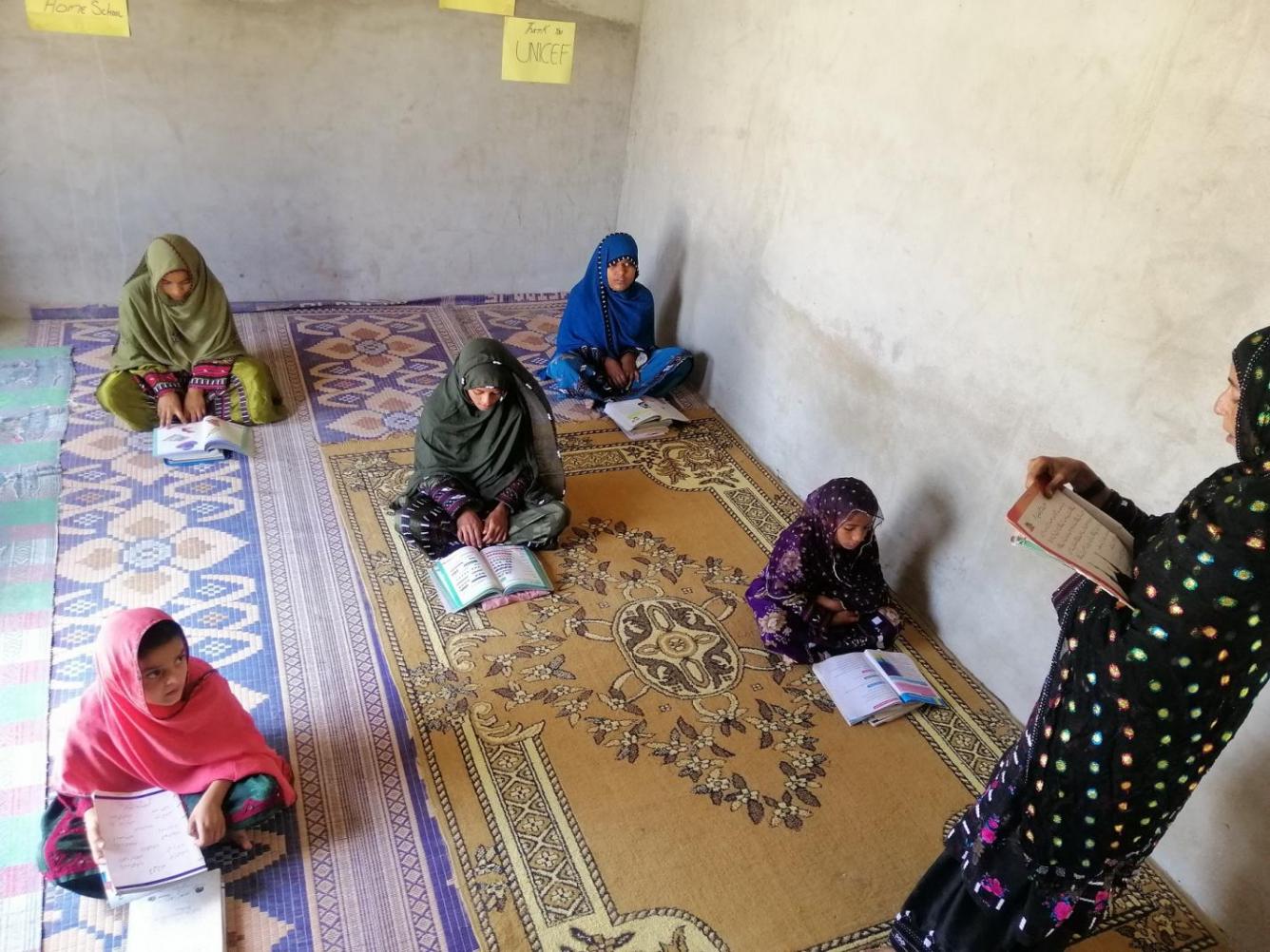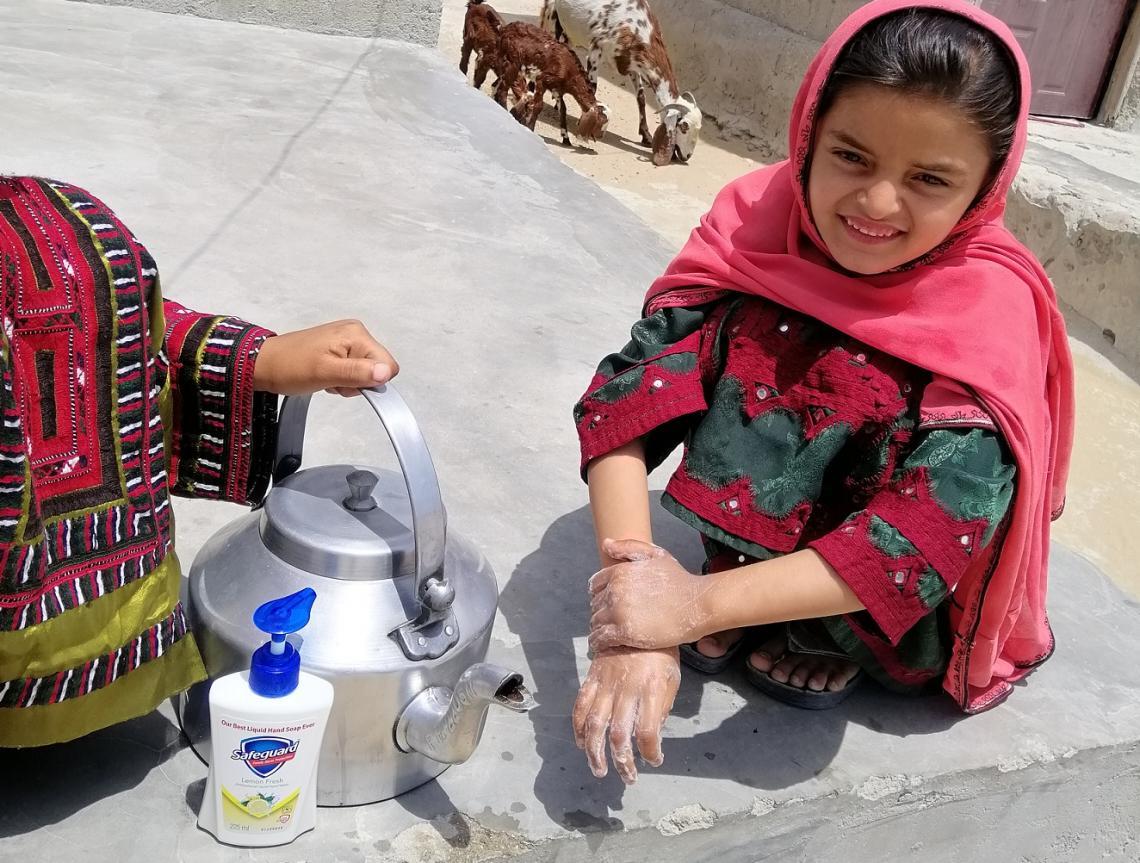Bringing the classroom home
Najeeba was disappointed. Like millions of other students around the world she found out she wouldn’t be able to continue studying at school due to the COVID-19 pandemic. But her disappointment wasn’t just about how the temporary closure of schools in Pakistan would affect her own plans.
“What bothered me the most was that it disrupted children’s education,” says Najeeba, 19, who lives in the city of Gwadar in Balochistan, Pakistan’s largest province. “I wanted every child in my family to keep studying, but…they couldn’t leave their homes.”
If the children in her family couldn’t go to class, Najeeba decided she’d arrange for the next best thing: class would come to them. “I decided to teach them myself, at home,” she says.
Najeeba volunteered for “Mera Ghar Mera School”, which means “My Home, My School”, an initiative supported by UNICEF and Balochistan’s Secondary Education Department that helps children continue learning despite the COVID-19 lockdowns.
Najeeba turned one of the rooms inside her home into a classroom to give her space to teach English, maths and science. She received support from the “My Home, My School” initiative in the form of access to WhatsApp groups that provide guidance on home schooling. The groups also share information on how to protect families from the coronavirus, as well as tips for staying physically active.
“These are [trying] times, but I’m using it as an opportunity to be involved with children and to help them learn in a creative, fun way,” Najeeba says, adding that she makes sure to include time during the school day for games to keep children active.
Around 375 WhatsApp groups have been created under the initiative, with almost 14,000 group members. UNICEF-supported teams are also providing online support to parent-teacher school management committees and local education councils.

“Keeping the children’s attention wasn’t easy at the beginning, because I’m not a trained teacher,” says Najeeba. “But things improved after I started receiving content and guidance through the WhatsApp groups.”
Eight-year-old Mariam Ali is one of those benefitting from her cousin’s classes.
“It feels like being at school. I really enjoy the video lessons,” Mariam says. “At school, there are so many students that I sometimes find it difficult to get my teacher’s attention. Here, it’s easy because there are only five students.”
Najeeba tells her students how to protect themselves from COVID-19, including explaining the importance of everyone washing their hands properly. She also uses playtime activities to reinforce messaging around physical distancing.
“We sit apart and don’t touch each other [in class],” Mariam says.

Najeeba is confident that “My Home, My School” is helping children retain what they learned before regular classes were suspended, which should allow them to resume their education with confidence when schools reopen. But she says that the lessons about good personal hygiene practices have been just as important as the regular subjects, and that she has set up a convenient place for the children to wash their hands properly.
“Since the lockdown started, children have learned [a lot] about germs and viruses,” Najeeba says. “They now happily wash their hands with soap, and I make sure that they do it whenever required – and at least once an hour.”
